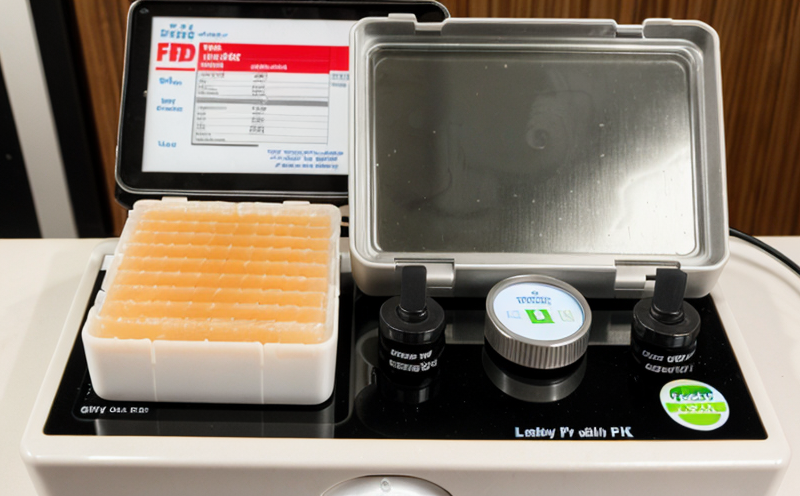AOAC 2021.02 Fatty Acid Profiling in Organic Foods
The AOAC International method 2021.02 is a widely recognized standard for the analysis of fatty acids and lipids in food products, particularly important for organic foods. This method allows for precise quantification of individual fatty acid components present in samples. Understanding the lipid profile within organic foods is critical for ensuring compliance with regulations and maintaining product integrity.
The process begins with thorough sample preparation to ensure accurate results. Samples are typically extracted using solvents like chloroform-methanol, followed by derivatization steps that transform fatty acids into more stable compounds suitable for gas chromatography (GC) analysis. Chromatographic separation allows for the identification and quantification of various fatty acid species.
Organic foods must meet stringent criteria regarding their production methods; thus, accurate profiling helps verify compliance with these standards. This includes ensuring no prohibited synthetic additives are present and that all natural ingredients conform to organic certification requirements. The methodology also supports quality control by identifying potential contamination issues early in the supply chain.
Adherence to international standards such as ISO 15686 and ASTM D4950 ensures consistency across laboratories worldwide, facilitating global trade and trust among stakeholders involved in producing or consuming organic foods. Compliance officers can rely on this testing to meet regulatory requirements while researchers benefit from detailed lipidomic insights into product composition.
Given the increasing demand for transparency around nutritional content and sourcing practices, fatty acid profiling plays a crucial role in meeting consumer expectations. By providing comprehensive data about the types and amounts of fats present in organic products, labs like ours contribute significantly to both regulatory compliance and sustainable supply chains.
- Evaluating the lipid profile helps ensure that organic foods meet strict certification criteria.
- Identifying individual fatty acids supports quality assurance programs aimed at maintaining consistent product quality.
- The method contributes to environmental sustainability by promoting responsible agricultural practices through detailed nutritional analysis.
Benefits
Implementing the AOAC 2021.02 methodology offers numerous advantages beyond mere compliance with regulatory standards:
- Precision and Accuracy: Our laboratory uses state-of-the-art equipment to deliver highly accurate results, which is essential for maintaining credibility in the industry.
- Detailed Insights: Understanding specific fatty acid compositions aids in formulating products tailored to meet consumer preferences while adhering to health guidelines.
- Regulatory Compliance: Ensuring that all tests align with relevant international standards guarantees smooth passage through certification processes and market entry.
The benefits extend beyond just the lab; they impact the entire supply chain, from producers to retailers. For instance, suppliers gain a competitive edge by offering products backed by reliable scientific data. Retailers can confidently recommend these items based on nutritional information provided through thorough testing procedures. Ultimately, consumers benefit from knowing that their purchases come from trusted sources.
By leveraging the AOAC 2021.02 method, organizations not only meet regulatory demands but also enhance their reputation for integrity and reliability—a key factor in building long-term customer loyalty.
International Acceptance and Recognition
The AOAC International 2021.02 method enjoys widespread acceptance across various countries due to its rigorous validation process and alignment with global food safety standards:
- Australia: The Australian Food Standards Code recognizes this methodology for analyzing fatty acids in organic foods.
- New Zealand: Similar to Australia, New Zealand incorporates AOAC 2021.02 into its food safety regulations.
- European Union (EU): Although the EU often develops its own methods, AOAC 2021.02 is frequently referenced for consistency and reliability.
- United States: Both federal agencies like FDA as well as state regulatory bodies accept this approach for assessing fatty acid profiles in organic products.
This international recognition underscores the importance of adopting such standardized practices. It fosters confidence among buyers globally, knowing that tests conducted under these protocols yield consistent and accurate results regardless of geographical location.





